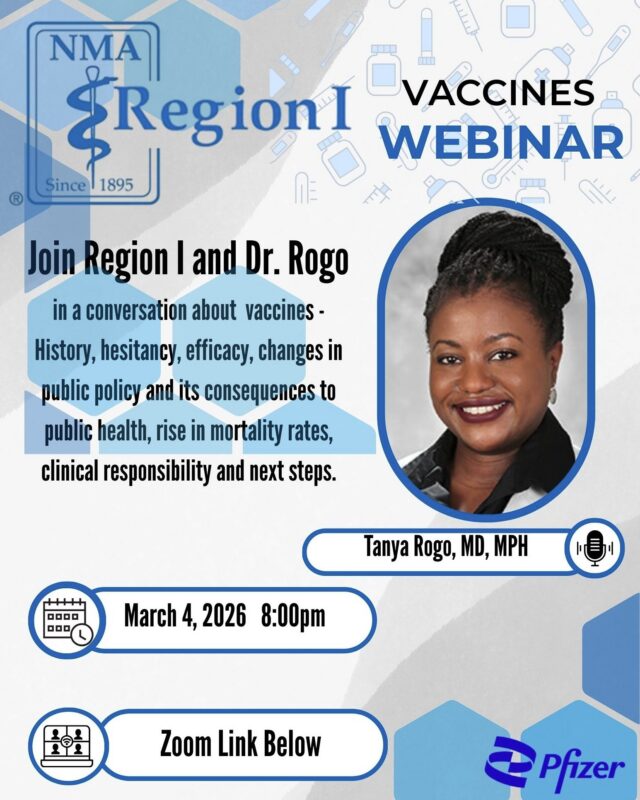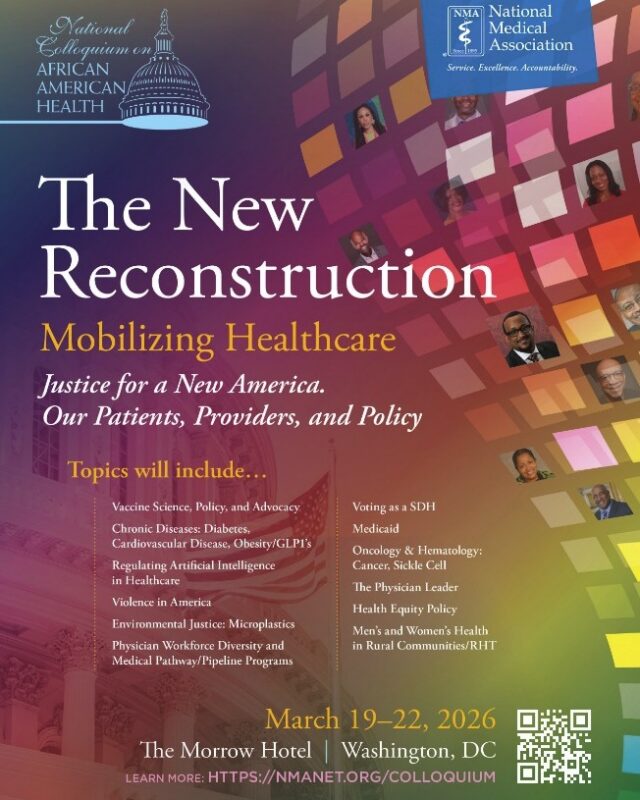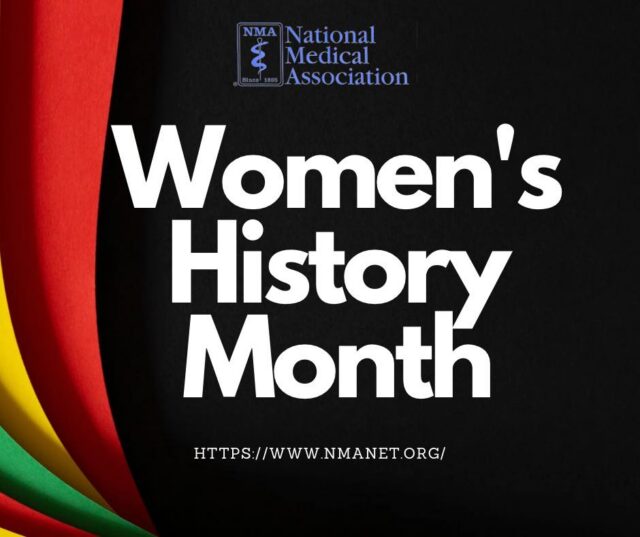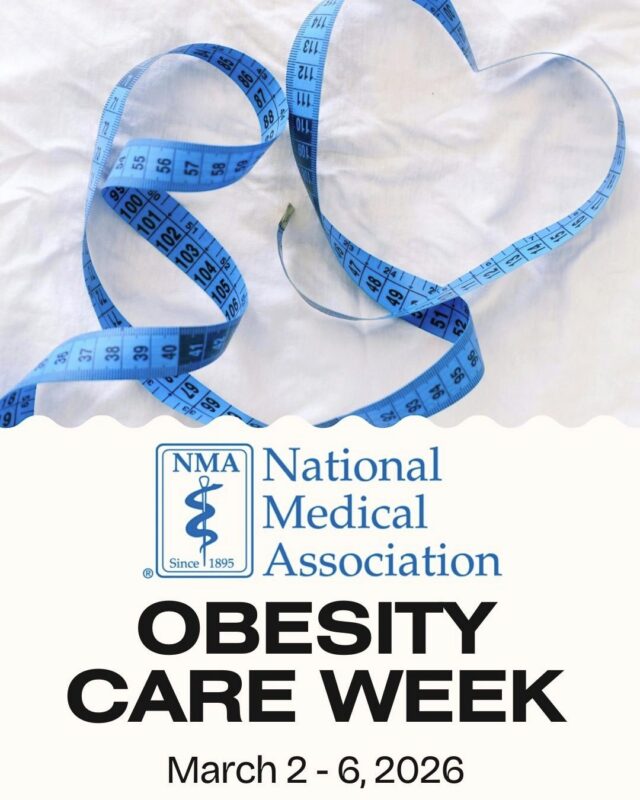May 21, 2024
The Honorable Tom Cole, Chairman- Committee on Appropriations
The Honorable Rosa DeLauro, Ranking Member – Committee on Appropriations
The Honorable Andy Harri, Chairman, Subcommittee on Agriculture, Rural Development FDA and Related Agencies
The Honorable Sanford Bishop, Ranking Member, Subcommittee on Agriculture, Rural Development FDA, and Related Agencies
Dear Mr. Cole, Ms. DeLauro, Dr. Harris and Mr. Bishop:
The National Medical Association – the largest and oldest national organization representing more than 50,000 African American physicians and the patients they serve,
submit concerns about restricting purchases of certain foods and beverages within the Supplemental Nutrition Assistance Program (SNAP). SNAP restrictions will most acutely
impact the lives of millions of Americans who, while receiving short-term temporary financial assistance from the federal government, deserve real nutrition education as
well as the same dignity of choice as others when it comes to feeding their families.
As physicians we see firsthand how nutrition, or the lack thereof, can play a role in chronic health conditions such as obesity, diabetes and cardiovascular disease. In fact,
according to the Department for Health and Human Services’ Office of Minority Health, African Americans are generally at higher risk for chronic health conditions compared to
their white counterparts. The data shows:
- African Americans are 30% more likely to die from heart disease than non-Hispanic whites.
- Non-Hispanic Blacks are 1.3 times more likely to be obese, as compared to non-
Hispanic whites. - African Americans are 50% more likely to have a stroke, as compared to their
white adult counterparts. - Non-Hispanic Blacks were 2.5 times more likely to be hospitalized with diabetes and associated long-term complications than non-Hispanic whites.
We know social determinants of health are an underlying cause of many of these common and costly conditions. These are the non-medical factors like poverty, healthcare access or education that contribute to health disparities. Addressing these systemic challenges in a meaningful and sustainable manner is not as simple as proposed by restricting certain foods or beverages from being purchased with SNAP benefits.
In fact, this is supported by the conclusions of a study authored by Harnack et al published just this month in the Journal of the Academy of Nutrition and Dietetics. The authors evaluated the effects of using program funds for the purchase of certain sugary foods and beverages on overall nutritional quality of foods and beverages purchased and consumed by participants. Participants were randomized to one of three conditions: restriction – not allowed to buy sugar-sweetened beverages, sweet baked goods, or candy with program funds; restriction paired with incentive – 30% incentive for fruits and vegetables (FV) purchased with funds; and control – funds provided with no restrictions or incentives and standard SNAP restrictions on non-food grocery items, alcohol, tobacco, etc., remained. Study participants received funds on a four-week cycle for 20 weeks via a study-provided debit card. Using the Healthy Eating Index-2015 total score, the study’s findings found no evidence “in support of prohibiting the purchase of sugary foods with food program funds as a strategy to improve program participant nutrition, even when paired with an FV incentive.”
Sugar reduction from all foods, especially processed foods, is something we support. However, we also endorse sodium and fat reduction, and are concerned the restrictions That is what I counsel my patients: grab a smaller portion or package, try something with lower or no sugar, and read the label to know what you’re putting into your body. I also recognize that in the real world, dietary changes don’t happen overnight. But over time, these changes not only can be achieved, but sustained for the long term – especially when people are given access to choices, clear information, and nutrition education. Imposing purchase restrictions only adds harm, taking away dignity of choice and adding further stigma.
Chronic conditions, especially in vulnerable communities, are devastating for families, expensive for the healthcare system, and a cause of lost job productivity for our economy. Our patients need comprehensive solutions that promote health outcomes and address social determinants of health. This includes a focus on nutrition education, access, and affordability.
We realize the public health effort in proposing the restriction but unfortunately consideration for individual circumstances are not addressed nor increased benefit funding if healthier food options are the goal.
I respectfully request that as you consider appropriations, you do so without taking away the ability for SNAP recipients to continue to make their own decisions about what they feed their families.
Sincerely,
Yolanda Lawson, M.D., F.A.C.O.G. President, National Medical Association
